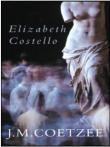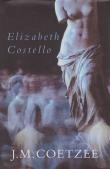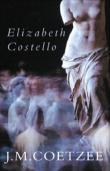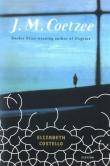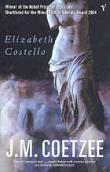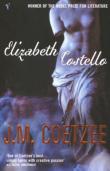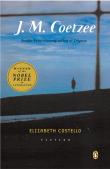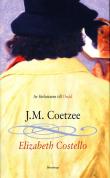AustLit
Latest Issues
AbstractHistoryArchive Description
In Elizabeth Costello: Eight Lessons, the eponymous protagonist is a retired author of international literary acclaim, who now spends her time giving guest lectures and interviews at scholarly events around the world. Old age has loosened, rather than reified, her ethical and literary convictions, and swelled her emotional reserves; rather than provide the staid academic wisdom expected of her, Costello offers provocative, unsettling opinions on issues such as animal rights, literary censorship, and the nature of belief - opinions she may or may not believe in herself. Profoundly aware of itself, Coetzee's novel is about human morality and mortality, but above all, about literature itself and the ethical responsibilities of writers and readers.
Notes
-
Acknowledgements
An earlier version of Lesson 1 appeared under the title 'What is Realism?' in Salmagundi nos. 114-15 (1997).
An earlier version of Lesson 2 appeared as 'The Novel in Africa', Occasional Paper no. 17 of the Townsend Center for the Humanities, University of California at Berkeley, 1999. Cheikh Hamidou Kane is quoted from Phanuel Akubueze Egejuru, Towards African Literary Independence (Greenwood Press, Westport, 1980), by permission of the author. Paul Zumthor is quoted from Introduction à la poésie orale, by permission of Éditions du Seuil.
Lessons 3 and 4 were published, with responses by Peter Singer, Marjorie Garber, Wendy Doniger and Barbara Smuts, as The Lives of Animals (Princeton University Press, 1999).
An earlier version of Lesson 5 appeared as 'Die Menschenwissenschaften in Afrika' / 'The Humanities in Africa' (Siemens Stifung, Munich, 2001).
An earlier version of Lesson 6 appeared in Salmagundi nos. 137-38 (2003).
'Letter of Elizabeth, Lady Chandos' was published by Intermezzo Press, Austin, Texas, in 2002.
Some chapters of this book are revised versions of essays previously published in literary and cultural journals.
-
Listed in The New York Times Book Review's list of Notable Books for 2003.
-
Editions and translations have been updated for Elizabeth Costelle: Eight Lessons by Eilish Copelin as part of a Semester 2, 2013 scholar's internship. The selection and inclusion of these editions and translations was based on their availability through Australian libraries, namely through the search facilities of Libraries Australia and Trove (National Library of Australia).
Given the international popularity of Coetzee's work, however, this record is not yet comprehensive. Editions and translations not widely available in Australia may not have been indexed. Furthermore, due to the enormous breadth of critical material on Coetzee's work, indexing of secondary sources is also not complete.
Publication Details of Only Known VersionEarliest 2 Known Versions of
Other Formats
- Large print.
- Sound recording.
Works about this Work
-
Molly Bloom and Elizabeth Costello : Coetzee’s Female Characters and the Limits of the Sympathetic Imagination
2019
single work
criticism
— Appears in: Reading Coetzee's Women 2019; (p. 39-53) Examines Coetzee's 'writing back' to James Joyce in Elizabeth Costello. -
He and His Woman : Passing Performances and Coetzee’s Dialogic Drag
2019
single work
criticism
— Appears in: Reading Coetzee's Women 2019; (p. 19-37) Examines Elizabeth Costello through the lens of what the author calls 'dialogic drag'. -
Revisiting the 'Problem' of Anthropomorphism through Ceridwen Dovey’s Only the Animals (2014)
2019
single work
criticism
— Appears in: Australian Literary Studies , July vol. 34 no. 1 2019;'In Ceridwen Dovey’s short story cycle, Only the Animals, inter-textual allusions to established fictional animals are imposed onto settings of human conflict and ventriloquised through diverse animal subjects. This paper defends narrating from a non-human animal perspective, not as a radical act, but as a move to reinvigorate our conceptions of human-animal relations. Meaningful encounters between human and non-human animals are presented with a recognition of the impossibility of full and mutual inter-species understanding. The juxtaposition of the limits of figuring literary animals with human/animal intimacy and incomprehension marks Dovey’s work as a logical progression of some ideas presented in J. M. Coetzee’s Elizabeth Costello. This paper reads Dovey’s deployment of textual self-referentiality and overt intersection with Coetzee’s work in Only the Animals as a reflexive writing form that works to critique another representational dispossession: that of anthropocentric realism. Both works understand that humans do not share language with non-human animals but we often meet questions of the animal through stories. This makes the stories we tell highly significant; indeed – vital – components of the cultural landscape.'
Source: Abstract.
-
Dialogical Numbers : Counting Humanimal Pain in J.M. Coetzee’s Elizabeth Costello
2018
single work
criticism
— Appears in: Transnational Literature , December vol. 11 no. 1 2018; -
Interceptionality, or The Ambiguity of the Albatross
2018
single work
essay
— Appears in: Sydney Review of Books , August 2018;'Coleridge wrote that ‘Poetry gives most pleasure when only generally and not perfectly understood.’ In his epic, ‘The Rime of the Ancient Mariner,’ published in 1798, the albatross is an uncertain presence, neither its species or colour is specified. It displays affection, presaging hope, guiding the ship and accompanying its crew for ‘food or play.’ But once the mariner randomly shoots the bird, the albatross becomes a burden, morphing into a symbol of atonement. Unnaturally slung from the mariner’s neck it crosses a boundary between the physical and moral world. The mariner endures seven days without rain or wind, suffering fever, hallucinations, the death of his crew and shipwreck. Native to the south polar seas, albatrosses were rarely sighted by European sailors, an early source being Cook’s voyages. There is overall agreement that Coleridge’s source was George Shelvocke’s account of a black albatross, also known as ‘sooty albatross’ or ‘quakerbird’, which he encountered during his round the world voyage, 1719-22. The bird was shot by the second captain because it was considered an ill-omen when the winds were unfavourable. Certainly, the albatross is othered in the poem, not merely by the laws of hospitality but by its uncharacteristic depiction and by the mythical, male-centred language that Coleridge used.' (Introduction)
-
Eventful Event
2003
single work
review
— Appears in: The Advertiser , 6 September 2003; (p. 13)
— Review of Elizabeth Costello : Eight Lessons 2003 single work novel -
An Invitation to Think
2003
single work
review
— Appears in: The Weekend Australian , 6-7 September 2003; (p. 13)
— Review of Elizabeth Costello : Eight Lessons 2003 single work novel -
Beyond Belief
2003
single work
review
— Appears in: The Bulletin , 9 September vol. 121 no. 6389 2003; (p. 76-77)
— Review of Elizabeth Costello : Eight Lessons 2003 single work novel -
Coetzee's Questions
2003
single work
review
— Appears in: The West Australian , 13 September 2003; (p. 14)
— Review of Elizabeth Costello : Eight Lessons 2003 single work novel -
Shortcuts : The Essential Week : Fiction
2003
single work
review
— Appears in: The Weekend Australian , 13-14 September 2003; (p. 10)
— Review of Elizabeth Costello : Eight Lessons 2003 single work novel -
Literary Names Give Award Fresh Life
2004
single work
column
— Appears in: The Australian , 30 April 2004; (p. 15) -
The Tyranny of the Literal
2005
single work
essay
— Appears in: Australian Book Review , April no. 270 2005; (p. 32-38) James Ley examines the act of reading literary novels and the interpretation that must occur within each reader, including understanding the author's use of irony. Although the task may sometimes be challenging, Ley concludes that reading is 'a creative act. Unlike almost everything we are encouraged to consider entertainment, it is an active pursuit. Without this process of interpretation we cannot know ourselves.' -
The Babushka Doll of Narrative
2007
single work
column
— Appears in: The Age , 3 February 2007; (p. 30) -
Tilting on the Axis of Evil: Australian Literature and Moral Relativism
2006
single work
criticism
— Appears in: Explorations in Australian Literature 2006; (p. 1-16) Dennis Haskell discusses depictions of moral relativism in Australian literature. He cites various examples including the characters of Elizabeth Costello (in Elizabeth Costello) and Ellen Roxburgh (in A Fringe of Leaves). -
Shattering the Word-Mirror in Elizabeth Costello : J. M. Coetzee's Deconstructive Experiment
2007
single work
criticism
— Appears in: The Journal of Commonwealth Literature , vol. 42 no. 1 2007; (p. 79-96) The author aims to demonstrate 'how Elizabeth Costello undermines the conventions of mimetic referentiality and blends narrative and essay' (80), offering a Barthean 'writerly text,' 'allowing for an interpretive pluralism that elevates the reader to the rank of co-writer' (81).
Awards
- 2005 longlisted International IMPAC Dublin Literary Award
- 2004 shortlisted Victorian Premier's Literary Awards — The Vance Palmer Prize for Fiction
- 2004 winner Queensland Premier's Literary Awards — Best Fiction Book
- 2004 shortlisted Miles Franklin Literary Award
- 2004 shortlisted New South Wales Premier's Literary Awards — Christina Stead Prize for Fiction
-
cUnited States of America (USA),cAmericas,
-
Amsterdam,
cNetherlands,cWestern Europe, Europe,
- Africa,

